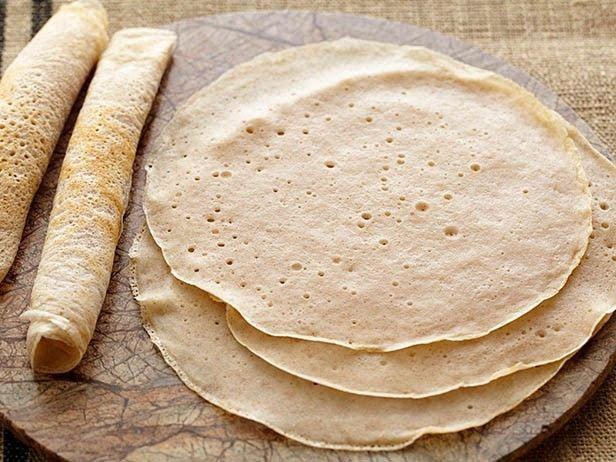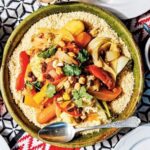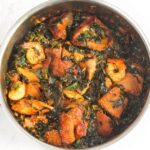In the vast culinary landscape of South Sudan, a land of diverse cultures and rich traditions, Kisra stands out as a staple food that has been enjoyed for generations. Kisra is a fermented sorghum flatbread that holds a special place in the hearts and palates of the South Sudanese people. With its unique flavor profile and versatility, Kisra embodies the essence of the country’s culinary heritage.
Sorghum, a gluten-free grain, is the primary ingredient in Kisra. It is widely grown in South Sudan and holds significant cultural and economic importance. The process of making Kisra begins by soaking sorghum grains in water for several days, allowing them to ferment. This fermentation process not only imparts a distinct tangy flavor to the bread but also enhances its nutritional value by breaking down complex carbohydrates and making them more easily digestible.
Once the sorghum has fermented, it is ground into a fine flour, and water is added to form a thick batter. Traditionally, the batter is then spread thinly over a large circular griddle, known as a tabag, which is heated over an open fire. The flatbread is cooked slowly until it becomes golden brown and develops a slightly crispy texture on the outside while remaining soft and pliable on the inside.
The flavor of Kisra is what truly sets it apart. The fermentation process gives the bread a tangy, sour taste, similar to sourdough bread. This unique flavor profile adds depth to any dish it accompanies. Kisra is often enjoyed alongside stews, soups, and a variety of dishes made with meat, fish, or vegetables. Its ability to absorb flavors makes it an excellent companion to the vibrant and aromatic South Sudanese cuisine.
The versatility of Kisra is another reason for its popularity. It can be eaten fresh and warm, straight off the griddle, or left to cool and then used as a base for sandwiches or wraps. It can also be torn into pieces and used to scoop up stews or dips. The soft and pliable nature of Kisra makes it easy to handle and an ideal vessel for enjoying a variety of flavors.
Beyond its delectable taste, Kisra holds cultural significance in South Sudan. It is often prepared and shared during festive occasions, such as weddings, religious ceremonies, and family gatherings. The process of making Kisra is often a communal activity, where family members come together to grind the sorghum, mix the batter, and cook the bread. This sense of togetherness and tradition is ingrained in every bite of Kisra, making it more than just a food—it is a symbol of unity and heritage.
In recent years, Kisra has garnered attention beyond the borders of South Sudan. As international interest in African cuisine grows, food enthusiasts and chefs alike are discovering the unique flavors and cultural significance of Kisra. Its gluten-free nature and fermented goodness also align with the rising trend of healthy and diverse eating.
South Sudanese Kisra, with its fermented sorghum goodness, tangy flavor, and cultural significance, truly represents the soul of the country’s cuisine. It showcases the resourcefulness and creativity of the South Sudanese people in utilizing their local ingredients to create a versatile and delicious staple food. So, if you ever have the opportunity to taste this remarkable flatbread, be prepared to savor the flavors of South Sudan and embark on a culinary journey that celebrates tradition and community.








